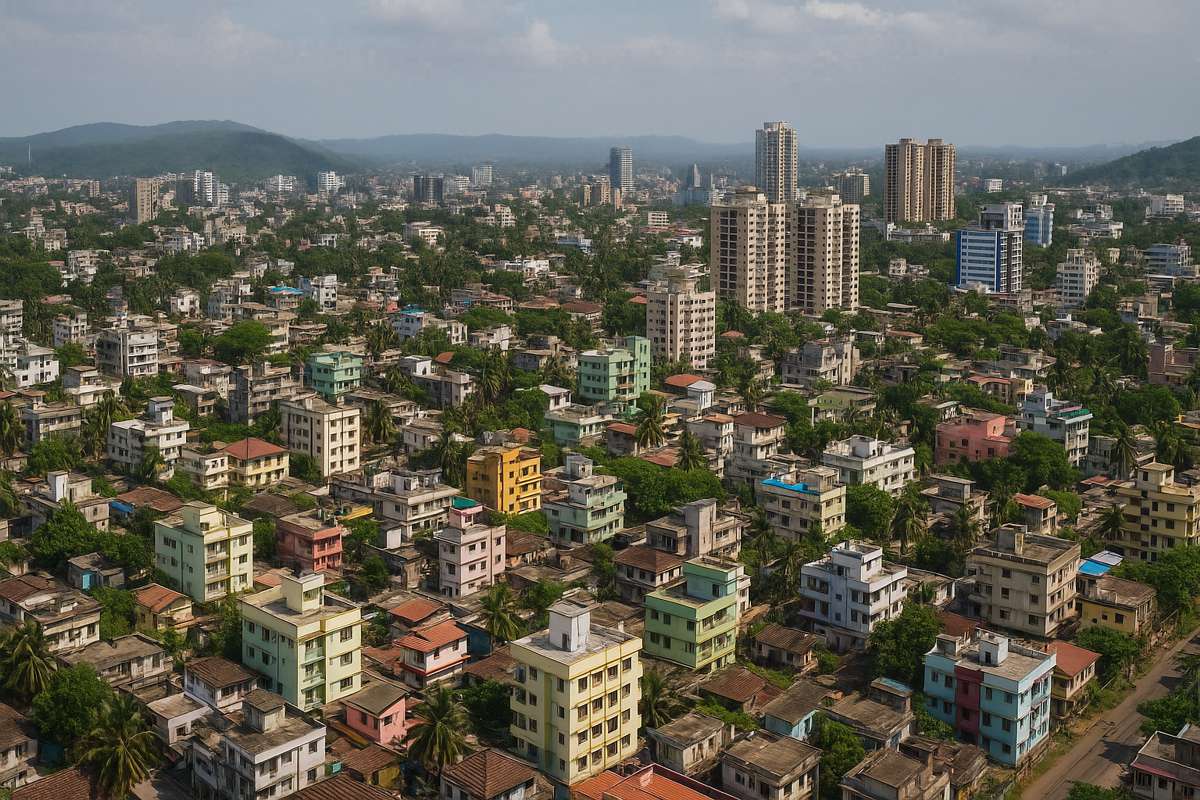ADB Transforming Assam with $125m Investment in Urban Resilience and Growth
The Asian Development Bank (ADB) has greenlit a transformative $125 million loan aimed at reshaping urban infrastructure and climate resilience across Assam, one of India’s most flood-prone and infrastructure-challenged states.
This bold investment isn’t just about pipes and pavements. It’s about preparing cities to face the realities of climate change while empowering communities through better services, inclusive planning, and smarter governance.
Assam’s six district headquarters, Barpeta, Bongaigaon, Dhubri, Goalpara, Golaghat, and Nalbari, along with Guwahati, will directly benefit from the Assam Urban Sector Development Project. With an estimated reach of 360,000 people, this effort is more than a lifeline—it’s a blueprint for how to do urban development right.
ADB Country Director for India Mio Oka underscored the project’s scale and ambition: “This transformative project will not only improve basic urban services but also empower communities, especially women and disadvantaged groups, through inclusive climate-resilient infrastructure and digital governance in Assam.”
Clean Water on Tap
Water scarcity and poor-quality supply have long plagued the towns of Assam. The ADB project tackles this head-on with the construction of six new water treatment plants, collectively capable of processing 72 million litres per day. Alongside this, an expansive 800-kilometre network of new water distribution pipelines will deliver safe, metered water directly to homes.
Equally critical is the project’s plan to manage non-revenue water, a persistent drain on utility budgets and public trust. Through a state-of-the-art real-time monitoring system, the goal is to keep non-revenue water under 20%, a major leap forward in operational efficiency.
This leap is about more than just pipes. It’s about shifting how towns think about, manage, and value water. Metered supply and volumetric tariff systems will also help ensure long-term financial sustainability.
Turning the Tide on Urban Flooding
Flooding has become a regular nightmare for Guwahati, especially in areas like the Bahini Basin. During peak monsoon, the city’s drainage systems are simply overwhelmed, leading to dangerous waterlogging, property damage, and disruptions to economic activity.
The ADB-funded upgrades promise a dramatic turnaround. Planned works include flood diversion channels, upgraded drains, and a nature-based retention pond designed to soak up excess water and recharge the groundwater table. These aren’t quick fixes. They’re long-term solutions tailored for the realities of a changing climate.
Nature-based infrastructure, an approach that integrates environmental features like wetlands and green corridors into urban planning, is central to the city’s resilience strategy. This shift from concrete to green solutions offers the dual benefit of better water management and enhanced urban biodiversity.
Governance Gets a Digital Makeover
Urban reform isn’t just about infrastructure; it’s also about governance. The project will establish the Assam State Institute for Urban Development, developed in partnership with the Indian Institute of Technology Guwahati. This think tank/training hub will build capacity among urban planners and municipal officers, laying the groundwork for smarter cities.
The tech upgrades don’t stop there. The rollout of GIS-based property tax systems and digital water billing platforms across project towns will inject much-needed transparency into municipal finance. These systems, coupled with a new volumetric water tariff, will enable better cost recovery and encourage responsible consumption.
Put simply, the goal is to make urban management more accountable, data-driven, and user-friendly.
The Heart of Urban Progress
One of the project’s most notable features is its commitment to gender equity and social inclusion. Rather than an afterthought, women’s participation is built into every layer of the initiative.
Self-help groups made up of women will receive training to take on water operations roles, a step that both empowers local communities and ensures operational sustainability. For younger women, internships are on the cards, alongside school programmes that raise awareness around sanitation, hygiene, and water conservation.
These efforts aren’t just box-ticking exercises. They form part of a broader push to rebalance decision-making and participation in infrastructure projects, long a male-dominated field.
As ADB’s Mio Oka noted: “By investing in climate-resilient systems and urban reforms, Assam is setting a benchmark for sustainable urban development in India.”
India’s Urban Future
With India expected to house over 600 million urban dwellers by 2030, projects like this carry lessons for the rest of the country. Assam’s push toward decentralised, climate-adaptive, and community-focused development offers a powerful counterpoint to the often piecemeal and top-down nature of urban infrastructure rollouts elsewhere.
ADB’s blend of financial muscle, technical support, and policy engagement allows partner states to not only build things but to build better. From integrating nature-based solutions to boosting digital governance, the Assam project reflects a new paradigm in development finance.
Laying the Groundwork for Broader Regional Impact
Beyond Assam, this project could spark a ripple effect. Neighbouring north-eastern states, many of which face similar climate and infrastructure challenges, may look to replicate the model. Given the fragility of ecosystems and increasing urban migration in the region, a cross-state strategy for sustainable urban growth could well be on the cards.
ADB’s continued commitment to India’s urban transformation reflects its broader mission: building resilience not just in infrastructure, but in institutions, communities, and ecosystems.
A Brighter, Greener Future for Assam
This $125 million project finance is more than a financial transaction. It’s an investment in people, places, and long-term progress. With clean water, flood protection, empowered women, and smarter governance, Assam is positioning itself as a model for inclusive urban transformation in the face of climate pressure.
If all goes to plan, the region won’t just weather future storms. It’ll thrive through them.





























